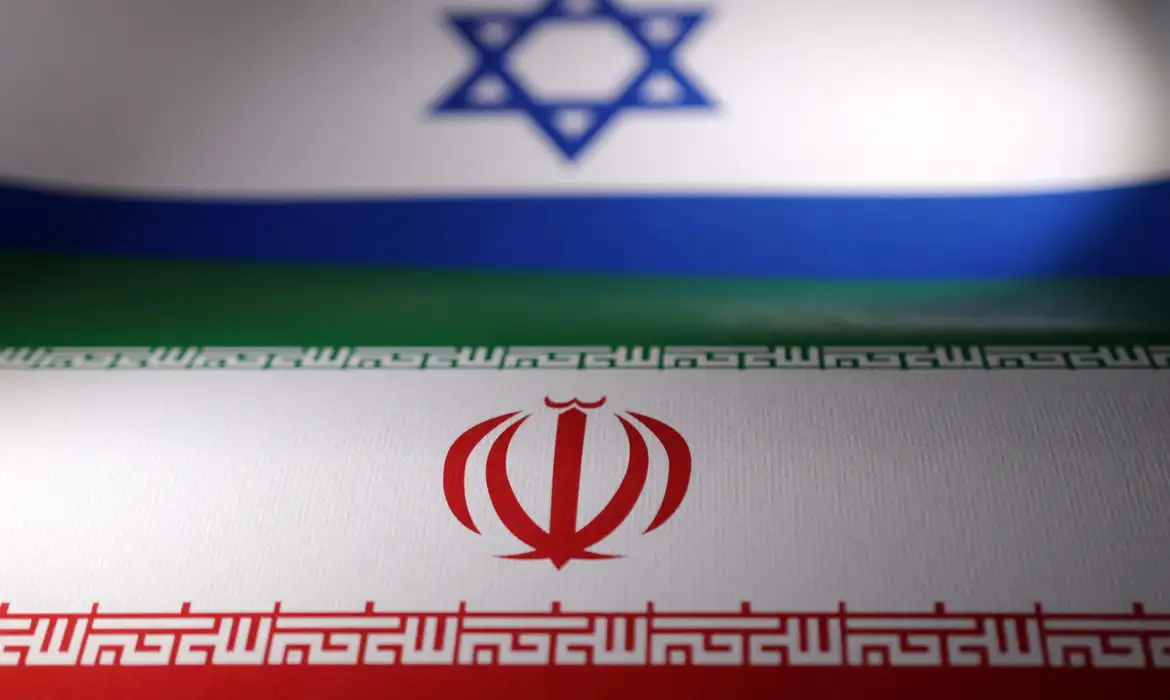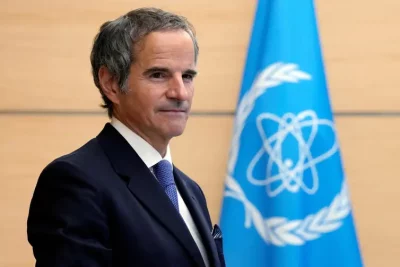
Desire to weaken enemies is behind the bombings of Israel
The planet crosses a suspense weekend. Since the night of last Thursday (12), Brasilia time, the bombing of Israel to nuclear centrals, military facilities and Iranian cities have resurrected the fear of a new war in the Middle East. Amid the reactions of Iran, which retaliated the bombing, the fear of a climb that may end in the use of nuclear weapons that can spread to other regions.
For experts heard by Agência Brasil, the origins of the conflict between Israel and Iran are in the dispute for expanding the spheres of influence in the Middle East. On the one hand, a country surrounded by enemies that has colonized Palestinian territories and is accused of committing genocide in the Gaza Strip. On the other hand, a Shiite Muslim country that has spent decades financing groups contrary to the Israeli state.
Geopolitics teacher at the Higher School of War (ESG) Ronaldo Carmona points out that Israel found a window of opportunities to weaken Iran, even with internal difficulties in the government of Benjamin Netanyahu. He points out that the country has an expansionist project in the Middle East.
“What we can conclude from this whole situation is that exactly Netanyahu is observing this window of opportunities to carry out its project from Greater Israel, that is, from a territorial expansion of Israel and the weakening of its opponents throughout the Middle East. It is carrying this project, albeit in a precarious political situation,” explains Carmona.
Map Israel Iran – Art/Dijor
Resistance axis
Regarding Iran, the teacher recalls that the country has been running Islamic resistance to Israel for decades and is weakened after a succession of blows in recent years, mostly sponsored by Israel. “The axis of resistance is exactly this set of allied Islamic forces, led by Tehran, which includes Hamas, Hezbollah, the Houthis in Yemen, Iraqi militias and included the former Syrian government of Bashar al-Assad. This lasted for decades,” he says.
“The destruction of Hezbollah’s ability in southern Lebanon and later in combination with Turkey a movement that overthrew Assad’s government in Syria. In the midst of all this, shots and bombs between Israel and Iran twice before the current conflict and the very atypical helicopter accident that killed the Iranian president in 2024. Netanyahu acts while being weakened internally, ”he adds.
Nuclear capacity
In the pretext of the current conflict is the Iranian nuclear program and the resolution approved on Thursday (12) by the Council of Governors of the International Atomic Energy Agency (AIEA). According to the approved text, Iran has not complied with its safeguard obligations that allow the agency to inspect the facilities to ensure that atomic weapons are not being developed.
 General Director of AIEA, Rafael Grossi, in Tokyo. 07/04/2023. | Eugene Hoshiko/Pool via Reuters
General Director of AIEA, Rafael Grossi, in Tokyo. 07/04/2023. | Eugene Hoshiko/Pool via Reuters
According to AIEA Director-General Rafael Grossi, Iran would be enriching 60% uranium and would have a 400-kilograms of enriched uranium. The resolution was approved by a tight margin, with 19 of the 35 countries voting in favor.
One day later, on Friday (13), Israel attacked the Persian country damaging nuclear facilities and weapons factories, killing high military and scientists in the country. Iran promised to retaliate Israel, aggravating the crisis in the Middle East.
War of versions
Israel claims that Tehran is building atomic bombs, which could be used against Tel Aviv. Iran denies and maintains that it uses atomic technology only for peaceful purposes, such as energy production. Already Israel is one of the few countries in the world that did not signs the Treaty of Non -Proliferation of Nuclear Weapons (TNP).
On the other hand, Iran is a signatory to TNP and denies that it has violated commitments to the IAEA. According to Tehran, the agency conducts a “politically motivated” campaign and guided by Britain, France, Germany and the United States, “under the influence of Israel.”
“AIEA has more visits to Iran than all countries added. Iran allows inspection and has been a diplomatic commitment since 2015 not to develop nuclear weapons, but to use technology for specific purposes, such as the development of radioisotopes for nuclear medicine,” says journalist and political scientist Bruno Lima Rocha, specializing in the Middle East.
“Who has never signed TNP and was never inspected is Israel. General Colin Powell, who led the first invasion of Iraq [em 2003] And it was the confidence of the Bush family, says that Israel must have about 200 ogives [nucleares] With missiles, ”he adds.
Originally published by Agência Brasil on 06/14/2025
By Wellton Máximo and Lucas Pordeus León – Reporters of Agência Brasil – Brasília
Edition: Aécio Amado
Source: https://www.ocafezinho.com/2025/06/15/entenda-as-origens-do-conflito-entre-israel-e-ira/

